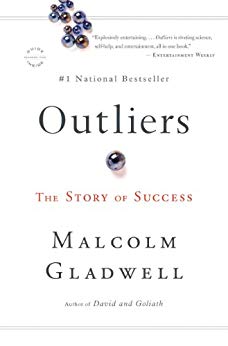

This article is an excerpt from the Shortform summary of "Outliers" by Malcolm Gladwell. Shortform has the world's best summaries of books you should be reading.
Like this article? Sign up for a free trial here .
What are some of the best quotes from the book Outliers? What are their meaning and context?
In Outliers, Malcolm Gladwell shows us that where you’re from and the opportunities you’re given matter as much as personal advantages such as talent and intelligence. He pokes holes in the myth that successful people are “self-made.”
Continue reading for a few thought-provoking quotes from Outliers and their context.
7 Quotes From Outliers
In Outliers, Gladwell shares some fascinating and often surprising insights about success. Here are a few quotes from Outliers that illustrate his points.
“No one was used to thinking about health in terms of community.”
Doctors tell us that individual actions, such as eating well, drinking less, exercising, and quitting smoking, have a huge impact on our health. For decades, the emphasis of preventative care was on individual choices. A study on the Pennsylvania town of Roseto turned that thinking on its head. Our communities affect our health as much as our individual choices do.
“Success is the result of what sociologists like to call ‘accumulative advantage.’”
This Outliers quote is in the context of opportunities that start early in life. Such opportunities are important in part because they tend to snowball into greater and greater opportunities over time. Just as a few dollars invested in the stock market can grow to thousands over a lifetime, a small advantage can compound over the months or years, leading to huge successes later on. This is called accumulative advantage or the Matthew Effect.
A passage in the Gospel of Matthew reads, “For unto every one that hath shall be given, and he shall have abundance. But from him that hath not shall be taken away even that which he hath.” In other words, those who receive opportunity tend to acquire additional opportunities. Those who receive initial disadvantages tend to accumulate further disadvantage.
“Practice isn’t the thing you do once you’re good. It’s the thing you do that makes you good.”
This Outliers quote is in the context of Gladwell’s 10,000-hour practice benchmark. It may seem obvious that we need to work hard to succeed, but too often we attribute success solely to talent and forget that the hours we put in matter just as much as, if not significantly more than, the natural gifts we start with.
You need a certain level of natural talent to get your foot in the door in a particular field. But after you are “good enough,” practice becomes the determining factor in how successful you are.
“Successful people don’t do it alone.”
This Outliers quote is Gladwell’s main point. Our cultures, communities, and families all impact how successful we become. Success is rarely the result of the actions of a single individual. Take a deeper look, and you see the hidden advantages, exceptional opportunities, and cultural legacies provided by and passed down through the outlier’s environment and the people who came before him.
“It is not how much money we make that ultimately makes us happy between nine and five. It’s whether our work fulfills us.”
With this Outliers quote, Gladwell makes an argument for meaningful work. He asserts that autonomy, complexity, and a relationship between effort and reward are the foundation of meaningful work. Many immigrants were not given the opportunity for meaningful work. They didn’t have the skills necessary for it.
Work is drudgery only if it isn’t meaningful. Work in the garment industry was often difficult, requiring exceptionally long hours and a degree of risk. However, Jewish immigrants taught the next generation that work could be joyful if it had meaning. Joe Flom had an advantage over other first-generation Americans at the time. He learned the value of hard work by his parents’ example. Once again, beyond Flom’s innate abilities, the particular circumstances of his birth and environment had a huge impact on his ultimate outcome.
“Cultural legacies are powerful forces. They have deep roots and long lives. … We cannot make sense of our world without them.”
The cultures of our ancestors (even the aspects we no longer practice or ascribe to) influence our present-day behaviors. The legacies of our cultures foster or impede our success.
This Outliers quote comes from the section of the book in which Gladwell looks at four distinct cultures: the culture of honor in the American South, the culture of deference in Korea, the culture of hard work in Asian countries, and the challenge to the culture of western education at KIPP schools. Each example shows that it matters where you’re from—not only geographically but also culturally.
“When it comes to math … Asians have a built-in advantage. But it’s an unusual kind of advantage.”
The idea that Asians are good at math is a stereotype. It’s also true – on international comparison tests, students from Asian countries score in the 98th percentile.
But Gladwell argues it’s not true for the reasons you might think, like genetic predisposition to math. Instead, Gladwell argues it comes from a cultural heritage of rice farming, which created a culture of diligence.
———End of Preview———

Like what you just read? Read the rest of the world's best summary of "Outliers" at Shortform . Learn the book's critical concepts in 20 minutes or less .
Here's what you'll find in our full Outliers summary :
- What makes some people outliers, and most others not
- Why some genius outliers end up failing in life
- Why Asians are good at math, and other curiosities of culture






